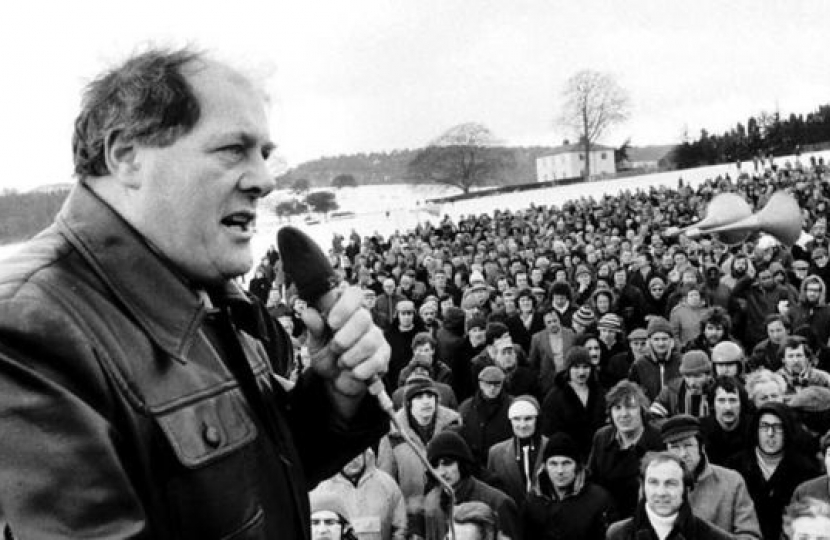
Last week saw the death of Derek Robinson, popularly known as Red Robbo.
Cradley born Robinson, a life long Communist, was able, in late 1960s and 1970s Britain, to behave in a way that would have secured him a bullet in the brain, polonium in his tea or a sharp stab from a poisoned umbrella, had he operated in any one of the Communist run countries, which he so admired.
An official of the Amalgamated Engineering Union (now Unite) at the car maker Austin’s Longbridge site in Birmingham, he succeeded another Communist agitator to be the plant union convenor. His time at Longbridge was marked by strike after strike, 523 in total, most of which he promoted and organised.
In those days, mass meetings of workers took strike decisions. This made possible intimidation and activist domination of the workforce. Tactics which Robinson and his fellows did not hesitate to use for their own political ends. Robinson’s efforts at Longbridge were rivalled by other unionist extremists at the company’s Cowley plant.
At Cowley, there was a Trotskyist cell determined to outdo Robinson’s disruption at Longbridge.
A weak Labour government, had recognised the damage caused by wreckers in the car industry and elsewhere and produced a policy proposal entitled “In Place of Strife” to bring in laws to curb their excesses.
Dominant trade union bosses and Labour’s left then intervened. The policy was shelved. Not for the last time, a Labour government neglected the national interest to preserve party unity. And Robbo and his ilk were given the green light to continue their destruction.
The inevitable resulted, and in 1975, the motor company went bust and had to be rescued by government nationalisation, emerging as British Leyland. Robbo was unaffected by the change and despite boasting that the enterprise was now owned by “the people”, seldom hesitated to shut it down and risk its survival with more wildcat strikes.
Feeble management failed to stand up to the agitator until 1979, when he was sacked. His response was to attempt a strike to secure his reinstatement. This time there was a ballot and 14,000 voted against supporting Robbo by strike action and 600 to do so.
That ended Robbo’s activist career but the writing was on the wall for British Leyland. Longbridge closed with the loss of 6000 jobs, mass car manufacture in the West Midlands ended for decades and the impact was felt by the numerous component suppliers of the region.
Unemployment and hardship were lifetime legacies from Robinson to many West Midlands workers and their families.
The trade union legislation produced by the Conservative Thatcher government requiring strike ballots and other safeguards, today makes the re-appearance of another Red Robbo and his destructive career unlikely.
But Robinson remains a warning from history.
In Corbyn’s Labour party there are plenty of doctrinaire socialists unreconciled to legal restrictions on trade union power and wanting a return to the 1970’s free for all. Their economic illiteracy, armchair theorising and Marxist dogma threaten the economy, jobs and living standards as much today as Robinson did in his prime.
